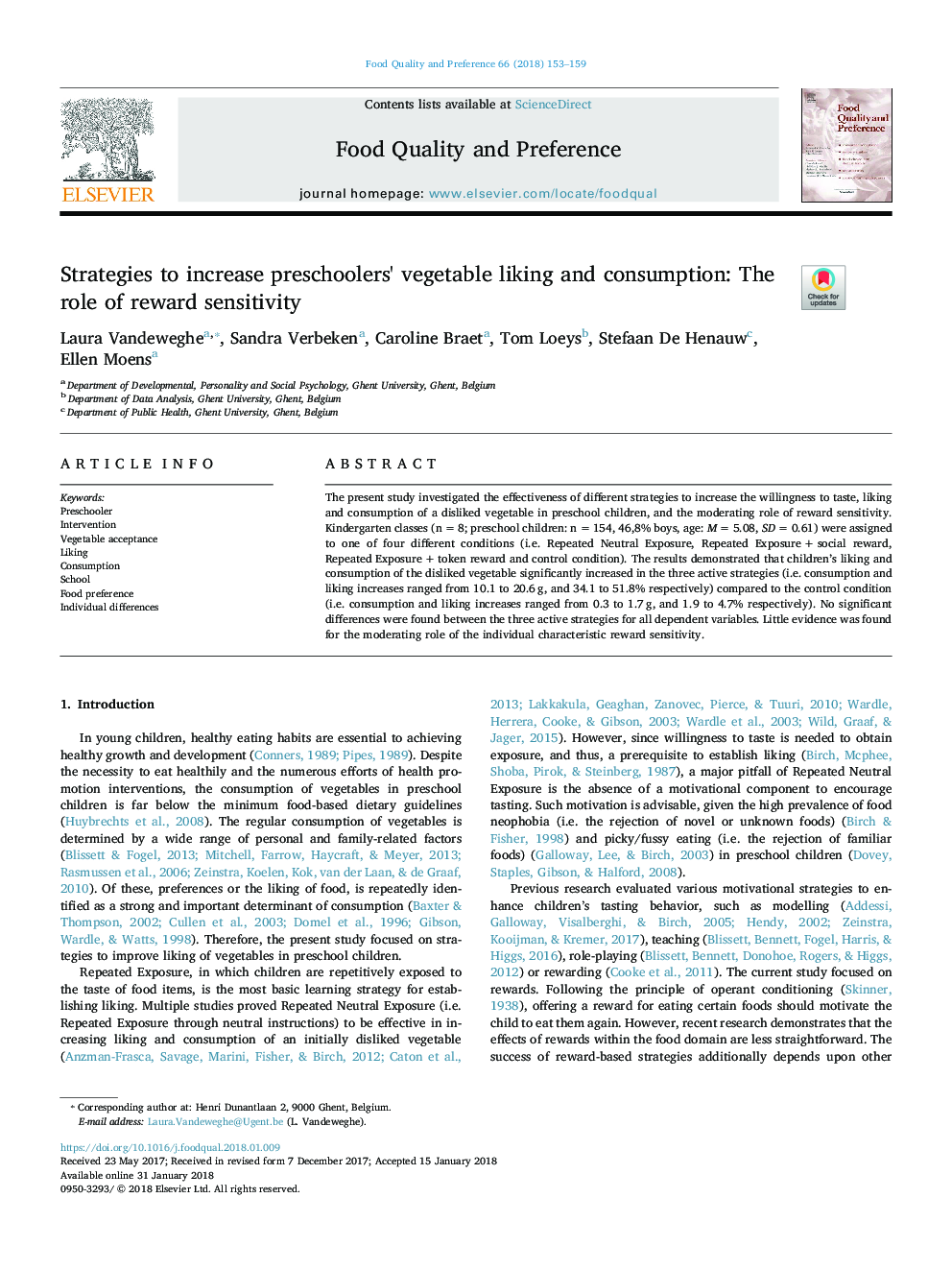| Article ID | Journal | Published Year | Pages | File Type |
|---|---|---|---|---|
| 8838529 | Food Quality and Preference | 2018 | 7 Pages |
Abstract
The present study investigated the effectiveness of different strategies to increase the willingness to taste, liking and consumption of a disliked vegetable in preschool children, and the moderating role of reward sensitivity. Kindergarten classes (nâ¯=â¯8; preschool children: nâ¯=â¯154, 46,8% boys, age: Mâ¯=â¯5.08, SDâ¯=â¯0.61) were assigned to one of four different conditions (i.e. Repeated Neutral Exposure, Repeated Exposureâ¯+â¯social reward, Repeated Exposureâ¯+â¯token reward and control condition). The results demonstrated that children's liking and consumption of the disliked vegetable significantly increased in the three active strategies (i.e. consumption and liking increases ranged from 10.1 to 20.6â¯g, and 34.1 to 51.8% respectively) compared to the control condition (i.e. consumption and liking increases ranged from 0.3 to 1.7â¯g, and 1.9 to 4.7% respectively). No significant differences were found between the three active strategies for all dependent variables. Little evidence was found for the moderating role of the individual characteristic reward sensitivity.
Related Topics
Life Sciences
Agricultural and Biological Sciences
Food Science
Authors
Laura Vandeweghe, Sandra Verbeken, Caroline Braet, Tom Loeys, Stefaan De Henauw, Ellen Moens,
